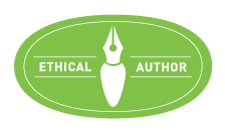I started writing because I wanted to tell stories.
My aim was to communicate – raise a smile, elicit a nod, provoke a frown or incite a reaction. Letters, journal entries, articles, stories and now books. My measure of success was simply to be read.
I knew I’d never make my fortune that way, but none of the things that make me happy are likely to clog the postbox with large cheques. Theatre, teaching, writing, eating fire…
fortune that way, but none of the things that make me happy are likely to clog the postbox with large cheques. Theatre, teaching, writing, eating fire…
The only thing that really mattered was to please my ideal reader. I wrote for someone judgemental, opinionated, ponderous, fickle, emotional, easily bored and difficult to entertain.
Me.
But to my own horror, I wasn’t good enough. Reader Me found Writer Me gauche, awkward, and embarrassingly derivative.
I needed help. I found writers’ critique sites, tested a few and finally found a home with similarly judgemental, opinionated, ponderous, fickle, emotional, easily bored and difficult-to-entertain folk. The difference? They showed me how to meet my own standards.
Ten years later, I’ve published four books and played midwife to another dozen. My keystone is always quality. So I ask questions. Is this book as good as it can possibly be? Does it look, feel and smell like an object of desire? Will it be read and enjoyed as a Good Book? Is it what I really wanted to write? Is it honest?
Last month, I spent a weekend with an author whose rewards from writing could allow her to retire. Yet she writes. Every day. Why? While there are stories to tell, a good writer can always get better.
On ALLi’s Self-Publishing Advice blog today, my Triskele colleague, Catriona Troth, tackles the troublesome question of why indie-published books only ever make headlines because of sales. And asks a question. What matters most to the Indie Writer – quality or quantity?
Whether you’re a reader or a writer, check it out.







